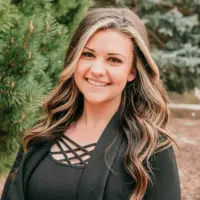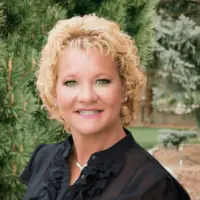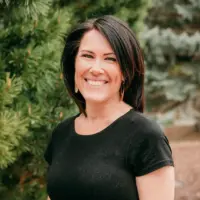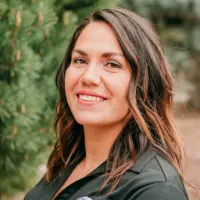About Maple Mountain Recovery
Maple Mountain Mental Health and Wellness, located in Mapleton, Utah, supports adults through services that address substance use disorders and mental health conditions. Founded in 2014, their mission is to help you rebuild your life to give you a better future. What strikes me most about them is their inclusion of ketamine therapy and neurofeedback to help you break free from addiction.
The center works with many major insurance plans. They extend options for private pay and self pay. Their admissions team will be happy to assist you in getting your insurance verified and can answer all of your coverage questions for you.
Peaceful Setting of Mapleton, Utah
While you’re in the area, you’ll be near many beautiful outdoor settings such as the Spanish Fork Canyon and Maple Canyon. You’ll also be near Wasatch Ranch and Hobble Creek Canon, both places offering opportunities for hiking in nature. I believe that immersing yourself in activities like these can work to enhance your emotional wellness as you work on your healing and recovery.
Detox and Extensive Addiction Treatment Programs
The center offers a full continuum of care including residential treatments, medical detoxification and intensive outpatient programs. If you need structure but also need to continue to live at home, their partial hospitalization program may be a good option for you. Their detox services are good for early states of recovery to help you safely cleanse from chemicals.
Ketamine-Assisted Therapy
Ketamine is known as a pain reliever due to its anesthetic effect. If you struggle with PTSD, major depression or OCD, this could be a good intervention to consider. You’ll work with a skilled care team who will ensure you achieve the best possible outcome.
Clients who’ve used Maple Mountain Mental Health’s services describe their care teams as kind, compassionate, and supportive. Other testimonials highlight breakthroughs due to the help received. Many alumni point to their strong aftercare services.
Facility Overview
Latest Reviews
Thank you for your beautiful words. At Maple Mountain Recovery, we are dedicated to fostering an environment where compassion, connection, and support work together to create meaningful change. Your feedback truly reflects the heart of what we strive for each day.
We’re grateful for your trust and kind words, and we wish you continued strength and happiness ahead.
— The Maple Mountain Recovery Team
Thank you so much for your thoughtful words. At Maple Mountain Recovery, we are committed to creating a space where personalized care, compassion, and holistic healing come together. It means a great deal to know that the environment we’ve worked hard to cultivate feels both supportive and uplifting.
We’re grateful for your kind feedback and encouragement, and we remain dedicated to providing an atmosphere where individuals feel truly seen and supported.
— The Maple Mountain Recovery Team
Rehab Score
Gallery
Accepted Insurance
Other Forms of Payment
Self-pay involves paying for treatment out of your own pocket. You can use savings or credit, get a personal loan, or receive help from family and friends to fund your treatment. If you don't have insurance or your insurance plan doesn't cover a specific program, self-pay can help ensure you still get the care you need.
Private insurance refers to any kind of healthcare coverage that isn't from the state or federal government. This includes individual and family plans offered by an employer or purchased from the Insurance Marketplace. Every plan will have different requirements and out of pocket costs so be sure to get the full details before you start treatment.
Addiction Treatments
Levels of Care
Outpatient rehab programs enable clients to integrate addiction treatment with their routine work and home life. Many facilities offer virtual services and evening, night, and weekend sessions to accommodate clients' schedules. Outpatient care typically includes rigorous psychotherapy, including group and family counseling. Most programs also prioritize addiction education and recovery-focused life skills training. Medication assisted treatment (MAT) is common for clients with alcohol and/or opioid dependency.
Addiction treatment at an inpatient rehab center is significantly more intensive than outpatient and community-based care. Clients remain at the facility for the duration of their program, though many centers offer supervised group excursions. Inpatient treatment typically consists of extensive psychotherapy, often including group and family counseling. Many programs also prioritize addiction education and recovery-focused life skills training. Holistic therapies, such as yoga, art therapy, EMDR, and meditation, are commonly available as well.
Clients often choose to enter intensive outpatient programs (IOP) when they exit inpatient rehab. Others turn to IOP as an alternative to hospitalization. Intensive outpatient rehabs offer high-level care for clients in early recovery and those at an elevated risk of relapse, typically requiring them to commit to between nine and 20 hours of treatment per week. The most prevalent treatment modalities include psychotherapy, recovery education, medication assisted treatment (MAT), and holistic therapies, such as meditation.
Medical detox is the safest way to remove addictive substances from your body under the care of medical professionals. In an inpatient environment, you'll be monitored 24/7 by doctors, nurses, and clinical experts, who will help keep you as safe and comfortable as possible and administer medication if needed to treat any withdrawal symptoms. The process may take up to a week or longer depending on your needs, and is often at least partially covered by insurance.
A partial hospitalization program (PHP) offers intensive treatment to those with moderate to severe addictions while allowing them to return home. It is often an alternative to inpatient hospitalization and a "step-down" option from residential programs. PHP treatment is tailored to your needs and lasts an average of 90 days. Weekly sessions are up to 8 hours for 5 days a week and can include relapse prevention, medication management, and behavioral therapy services. The cost of PHP treatment varies but is often fully or partially covered by providers.
In order to ensure your safety during the withdrawal process, rehabs offer 24-hour clinical care in Utah. You have access to experienced medical staff around the clock, and they can adminsiter treatments or perform clincial interventions that lessen withdrawal symptoms and make you more comfortable. Teatments can include medications, nutritional supplements, and mental health counseling.
Treatments
Professional addiction treatment at an alcohol rehab in Utah can help people struggling with alcohol use disorder. This disorder occurs when someone becomes psychologically or physically dependent on alcohol. During treatment, individuals undergo detox to safely withdraw from alcohol. Then, they participate in a customized treatment plan that uses behavioral therapies and support systems to help them move forward in recovery.
In Utah, dual-diagnosis addiction treatment programs have the expertise to help individuals with co-occurring substance use disorders and mental health conditions. These specialized programs are available in an intensive outpatient or residential inpatient setting, depending on the severity of the patient's mental health. Treatment incorporates therapies, such as cognitive-behavioral therapy (CBT), dialectical behavior therapy (DBT), 12-Step recovery, skills training, medication management, and aftercare support.
Dual-diagnosis rehabs in Utah provide comprehensive care for individuals facing both mental health and substance abuse challenges. Through personalized treatment plans tailored to your unique needs, clinicians provide a holistic and effective approach towards mental health. Programs usually include individual and group therapies, such as cognitive behavioral therapy, or dialectical behavioral therapy, mindfulness-based therapy, and skills training to dramatically enhance your chances of long-term sobriety and mental health.
In Utah, individuals looking for substance abuse treatment can find several inpatient and outpatient treatment programs. Typically, you can expect the program to include evidence-based therapies such as cognitive-behavioral therapy (CBT), dialectical behavior therapy (DBT), psychoeducation, skills development groups, and experiential therapies, like equine therapy, and adventure therapy. By receiving expert addiction treatment and learning new coping strategies, you'll drastically improve your mental health and the ability to achieve long-term sobriety.
When treating substance use disorder and a mental health condition, the best approach is to treat both conditions at the same time. Known as dual diagnosis treatment, this kind of specialized care provides you with 24/7 access to medical and mental health professionals, group therapy in order to provide a supportive peer group, and family therapy which helps to improve relationships with loved ones.
Programs
Adult rehab programs include therapies tailored to each client's specific needs, goals, and recovery progress. They are tailored to the specific challenges adult clients may face, including family and work pressures and commitments. From inpatient and residential treatment to various levels of outpatient services, there are many options available. Some facilities also help adults work through co-occurring conditions, like anxiety, that can accompany addiction.
Young adulthood can be an exciting, yet difficult, time of transition. Individuals in their late teens to mid-20s face unique stressors related to school, jobs, families, and social circles, which can lead to a rise in substance use. Rehab centers with dedicated young adult programs will include activities and amenities that cater to this age group, with an emphasis on specialized counseling, peer socialization, and ongoing aftercare.
Recovery is most successful when clients feel accepted and validated by their peers and treatment providers. Facilities that offer LGBTQ-inclusive programming are committed to creating a safe space where everyone can grow and recover without fear of judgment or discrimination. They will have dedicated policies in place to create a safe and supportive environment that fosters free expression.
Clinical Services
Community building is an important aspect of group therapy sessions in Utah. The sense of community building among participants encourages more transparent sharing of experiences in a judgment free environment. You create strong bonds with the people in your group that support your journey to recovery.
During individual therapy, men and women in Utah work with their therapists to build healthier daily habits and create coping strategies to manage stress. These are two components necessary for sustained sobriety and improved overall health.
Trauma therapy addresses the psychological impact of traumatic events. Together with a therapist, you identify the impact that trauma has had on your life and the factors that trigger emotional and physical responses. You develop better coping mechanisms to rebuild a sense of safety and trust in your life.
Therapists may use cognitive behavioral therapy (CBT) in Utah to address substance use and mental health disorders. The main focus is to change thinking patterns, which leads to behavioral change. Subtypes of CBT include exposure therapy, dialectical behavior therapy, and acceptance commitment therapy.
The goal of experiential therapy is to help you work through trauma or intense feelings by interacting with your environment and others. In a safe environment, you are able to resolve conflicts or challenges from the past. Techniques include adventure courses, equine therapy, martial arts, and music.
The foundation of motivational interviewing in Utah rests on four pillars: partnership, evocation, acceptance, and compassion. The therapist collaborates with the client, encouraging them to explore their options and make informed decisions about making changes in their lives.
Active addiction can quickly lead to malnutrition. This makes recovery even harder because your body doesn't have the nutrients it needs to function. During nutrition therapy, you'll learn about the effects of substance use on the body, how food can help your mental health, and how to maintain a nutritious diet.
When your body no longer gets nicotine from cigarettes, you will most likely experience withdrawal and craving symptoms. Nicotine replacement therapy is designed to ease these symptoms so you are more comfortable and less likely to relapse.
An important component of eating disorder treatment is psychotherapy. This involves regular meetings with a psychologist who is specially trained in the treatment of eating disorders. Treatment may last a few months to years.
Specialists trained in creative arts therapy can incorporate methods such as art, music, and writing therapy in your treatment program. These expressive methods may be combined with psychodynamic therapy and mindfulness based approaches.
Recreational therapy helps you in your addiction recovery program by improving your overall well being. Activities can include sports, music, and nature excursions that give you positive experiences, reduce your cravings, and offer the opportunity to reduce your stress. These aid in your addiction recovery.
During rational behavior therapy you learn how irrational thinking patterns have contributed to your feelings, emotions, and behaviors that drive addiction. You and your therapist collaborate on setting specific goals that help to meet your needs, including developing healthier decision making and coping strategies that promote sustained recovery.
Fitness therapy as a holistic approach is often added to drug and alcohol addiction recovery because it helps improve your physical and mental health. The method reduces stress, manages cravings, and improves your mood. Each of these factors is necessary to move toward lasting sobriety and recovery.
Amenities
-
Private Setting
-
Residential Setting
-
Yoga Studio
-
Hiking
-
Gym
-
Wifi
-
Mountain Views
Staff & Accreditations
Staff

Bud Harper
Founder

Allison
Human Resources Director

Stephanie
Operations and Equine Therapy Director

JeanAnne, PHD, APRN, CAPRN-AP, PMHNP
Medical Director, Psychiatric

Kevin
Clinical Director

Tori, LCSW
Primary Therapist

Tina, CSW
Outpatient Primary Therapist

Jenn
Admissions Director
Accreditations

The Substance Abuse and Mental Health Services Administration (SAMHSA) is a branch of the U.S. Department of Health and Human Services. Established in 1992 by congress, SAMHSA's mission is to reduce the impact of substance abuse and mental illness on American's communities.
SAMHSA Listed: Yes

The Joint Commission, formerly known as JCAHO, is a nonprofit organization that accredits rehab organizations and programs. Founded in 1951, the Joint Commision's mission is to improve the quality of patient care and demonstrating the quality of patient care.
Joint Commission Accreditation: Yes

State Licenses are permits issued by government agencies that allow rehab organizations to conduct business legally within a certain geographical area. Typically, the kind of program a rehab facility offers, along with its physical location, determines which licenses are required to operate legally.
State License: Utah
Contact Information
727 E 1100 S St Mapleton, UT 84664
Mapleton, UT 84664















